Introduction
In an increasingly complex regulatory environment, organizations face the dual challenge of managing disputes and conducting thorough investigations while maintaining compliance and integrity. Establishing a strong foundation through clear policies, effective communication, and meticulous documentation is essential for navigating these turbulent waters. As technology continues to evolve, integrating data analytics and innovative tools into investigative strategies can streamline processes and enhance risk management.
With the emergence of new trends in 2024, including heightened regulatory scrutiny and digital fraud, organizations must adapt proactively to safeguard their interests. This article delves into best practices, technological advancements, and essential strategies that CFOs can implement to drive effective dispute resolution and investigation efforts, ultimately fostering a culture of transparency and accountability.
Foundational Best Practices for Effective Disputes and Investigations
Effective conflicts and inquiries necessitate a strong framework, especially during periods of crisis. Begin by creating clear guidelines and protocols that detail the steps for handling conflicts, including specifying roles and responsibilities for team members engaged in inquiries. Regular training sessions should be conducted to keep staff informed about these procedures and best practices.
To enhance this framework, we integrate our proven Rapid-30 process, which not only fosters a culture of transparency and integrity but also facilitates early identification of issues that can prevent disputes from escalating. Our technology-enabled approach emphasizes collaboration and ensures accountability by documenting every step of the process.
For instance, in a recent engagement with a mid-sized manufacturing firm, we utilized real-time data analytics to pinpoint inefficiencies in their operations, resulting in a 30% reduction in dispute-related costs. This comprehensive documentation supports both short and long-term performance improvement, reinforcing our commitment to driving sustainable change.
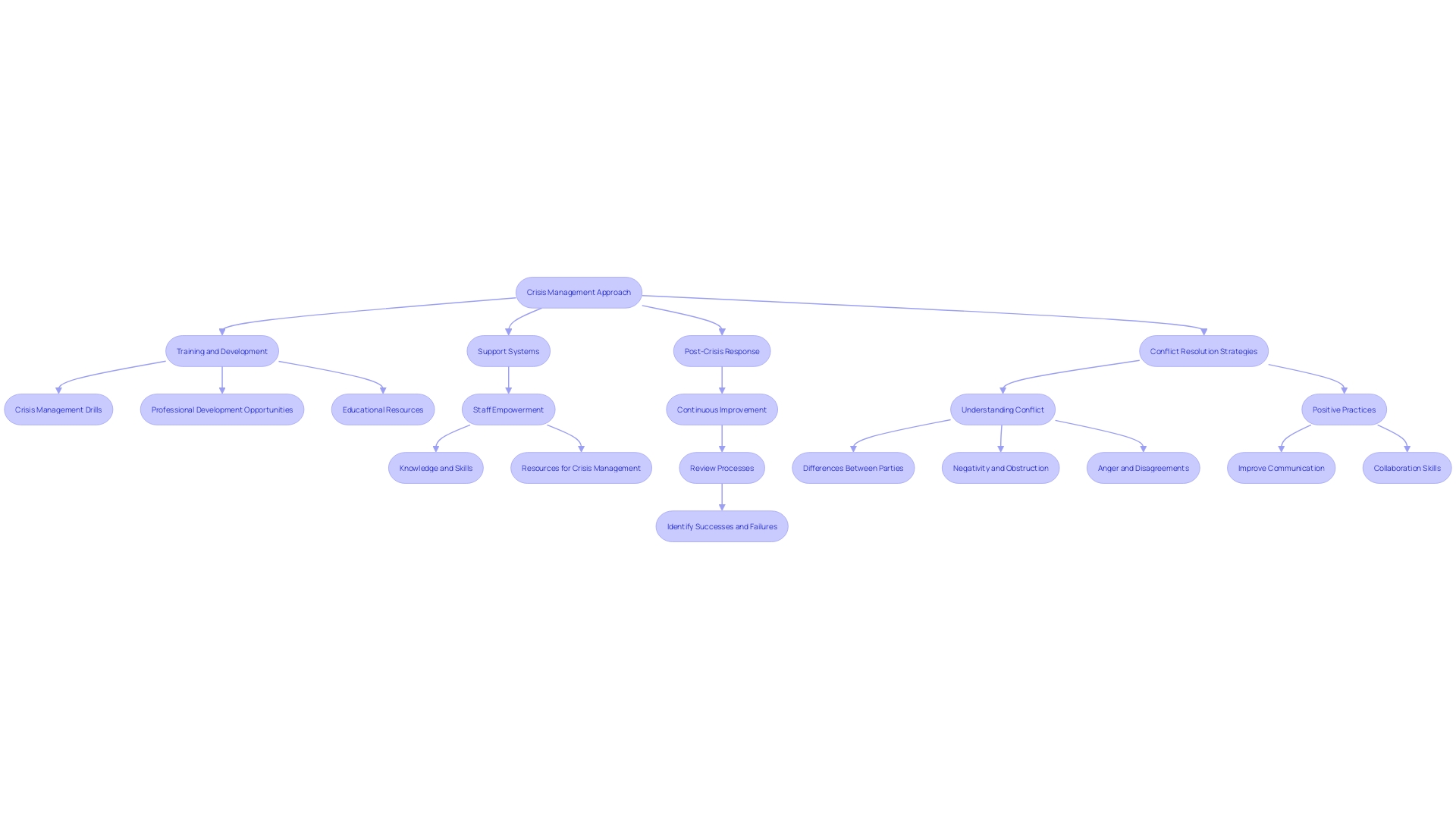
Harnessing Technology and Data Analytics in Investigative Strategies
Incorporating technology and data analytics into inquiry strategies can significantly improve effectiveness, as emphasized in the guide by experts Peter Griscom, David Bates, and Chase Hudson on revolutionizing SMB operations with AI/ML.
- Forensic accounting software is essential for analyzing financial data and identifying irregularities.
- Data visualization tools present complex data in an easily digestible format.
- Furthermore, machine learning algorithms can detect patterns indicative of fraudulent activities.
By investing in these technologies, organizations not only streamline their inquiry processes but also enhance risk reduction and compliance capabilities, embodying the transformative strategies outlined by these industry leaders.
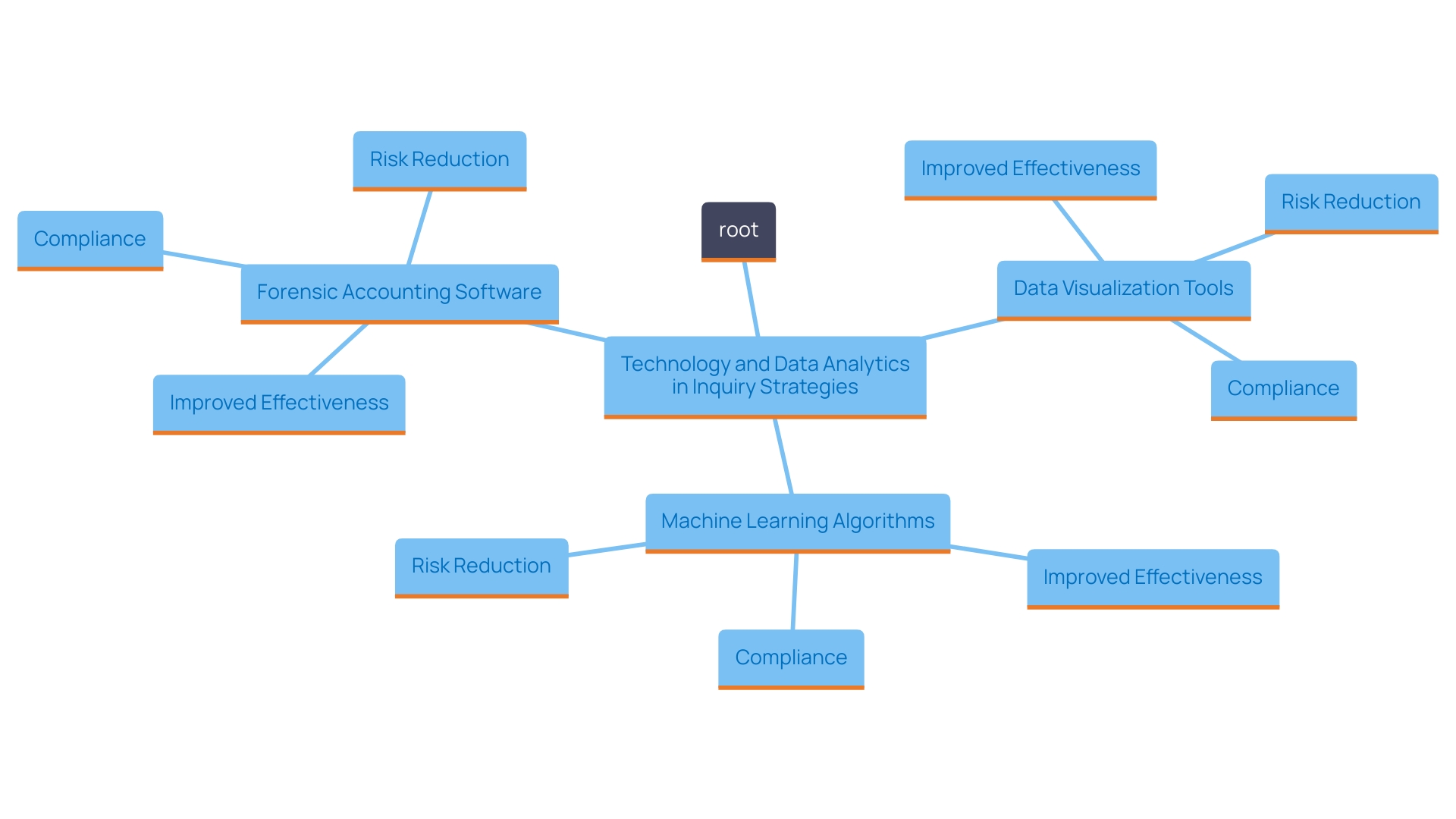
Emerging Trends Shaping Disputes and Investigations in 2024
As we transition into 2024, several trends are emerging that will influence the environment of conflicts and investigations:
- Increased regulatory scrutiny is expected, with governments ramping up enforcement actions against non-compliant organizations.
- The rise of digital fraud techniques necessitates ongoing training for investigative teams to recognize and address these new methods.
- Organizations must also pay attention to the growing significance of public perception and stakeholder trust, which can influence the results of conflicts.
Adjusting to these trends will be crucial for sustaining a competitive advantage and ensuring adherence.
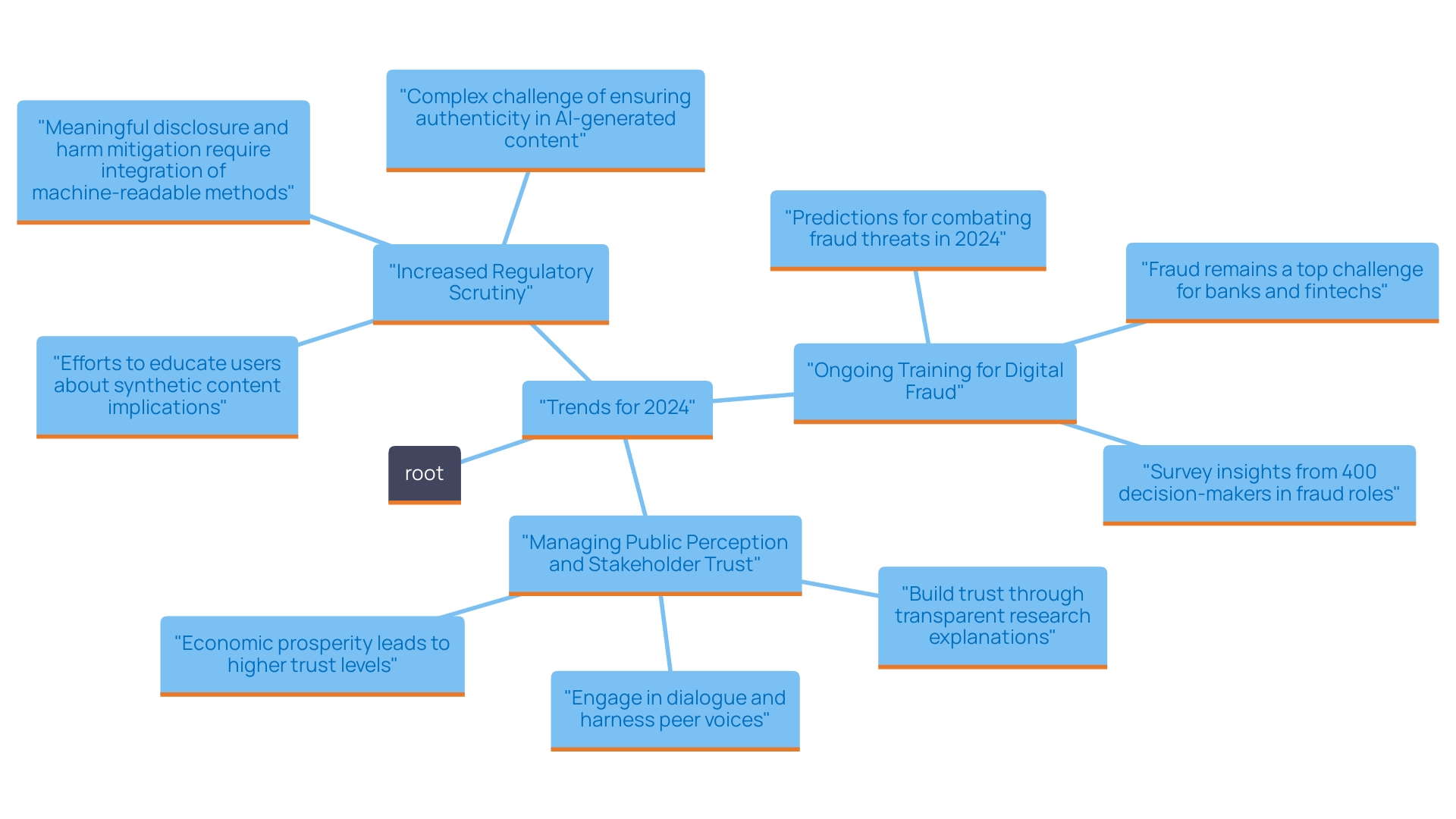
Navigating Regulatory Compliance and Government Enforcement in Investigations
Navigating the regulatory landscape requires a thorough understanding of applicable laws and regulations related to disputes and investigations. Organizations should create a regulatory framework that includes:
- Regular audits
- Staff training
- Clear reporting mechanisms
When facing government inquiries, prompt and transparent communication is key. Collaborate with legal counsel to ensure that all responses are accurate and complete. Additionally, staying informed about changes in regulations can help organizations anticipate and prepare for compliance challenges, ultimately safeguarding against potential penalties.
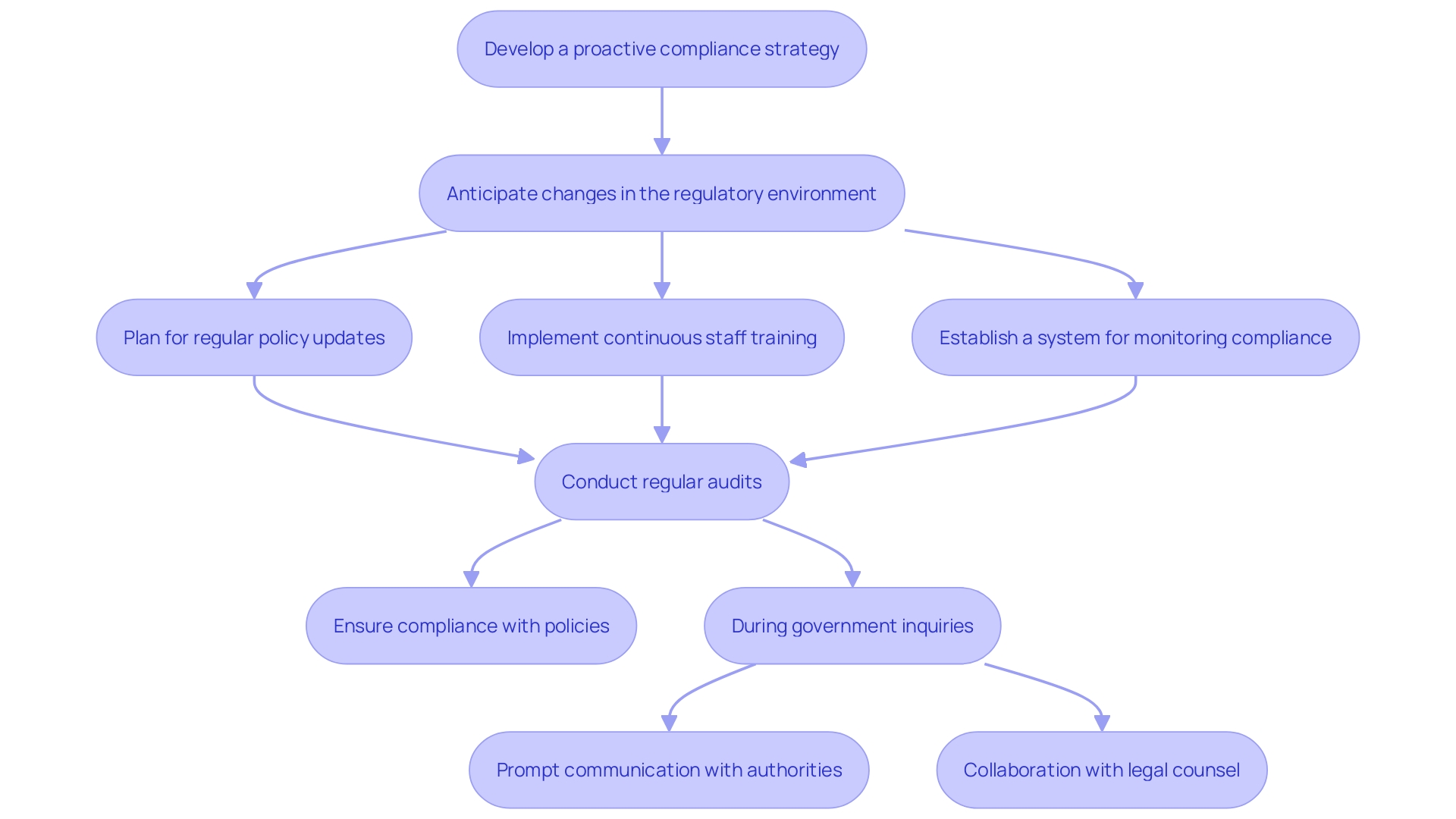
The Role of Communication and Documentation in Successful Investigations
Successful inquiries depend heavily on effective communication and meticulous documentation. Establishing clear and open lines of communication among all stakeholders is paramount, ensuring that information is exchanged promptly and accurately. By utilizing project management tools, teams can track progress and maintain accountability throughout the inquiry process, thereby enhancing communication efficacy.
Documentation is equally essential to the success of inquiries. All investigative steps, including interviews, evidence collection, and decision-making processes, must be meticulously recorded. This thorough recordkeeping not only creates a clear trail of the investigation but also serves as a crucial resource in the event of disputes. For example, continuous training in Good Documentation Practices (GDocP) and Good Record Keeping (GRK) for staff in the distribution supply chain has been demonstrated to significantly lower the risk of failing a GMP audit. Such training aligns with regulatory requirements and best practices, which is increasingly relevant given the FDA and TGA's heightened scrutiny on employee records and documentation practices.
Muznah Naeem aptly states, 'To avoid audit findings and citations — and the potential for having to implement a recall due to poor documentation practices — good recordkeeping is essential.' Regular review and updates of documentation practices are necessary to ensure adherence and adapt to evolving standards.
In conclusion, effective communication and robust documentation are indispensable to the success of forensic and inquiry processes. By prioritizing these elements, CFOs can ensure compliance, reduce the risk of disputes, and enhance the overall integrity of their organization’s investigative efforts.
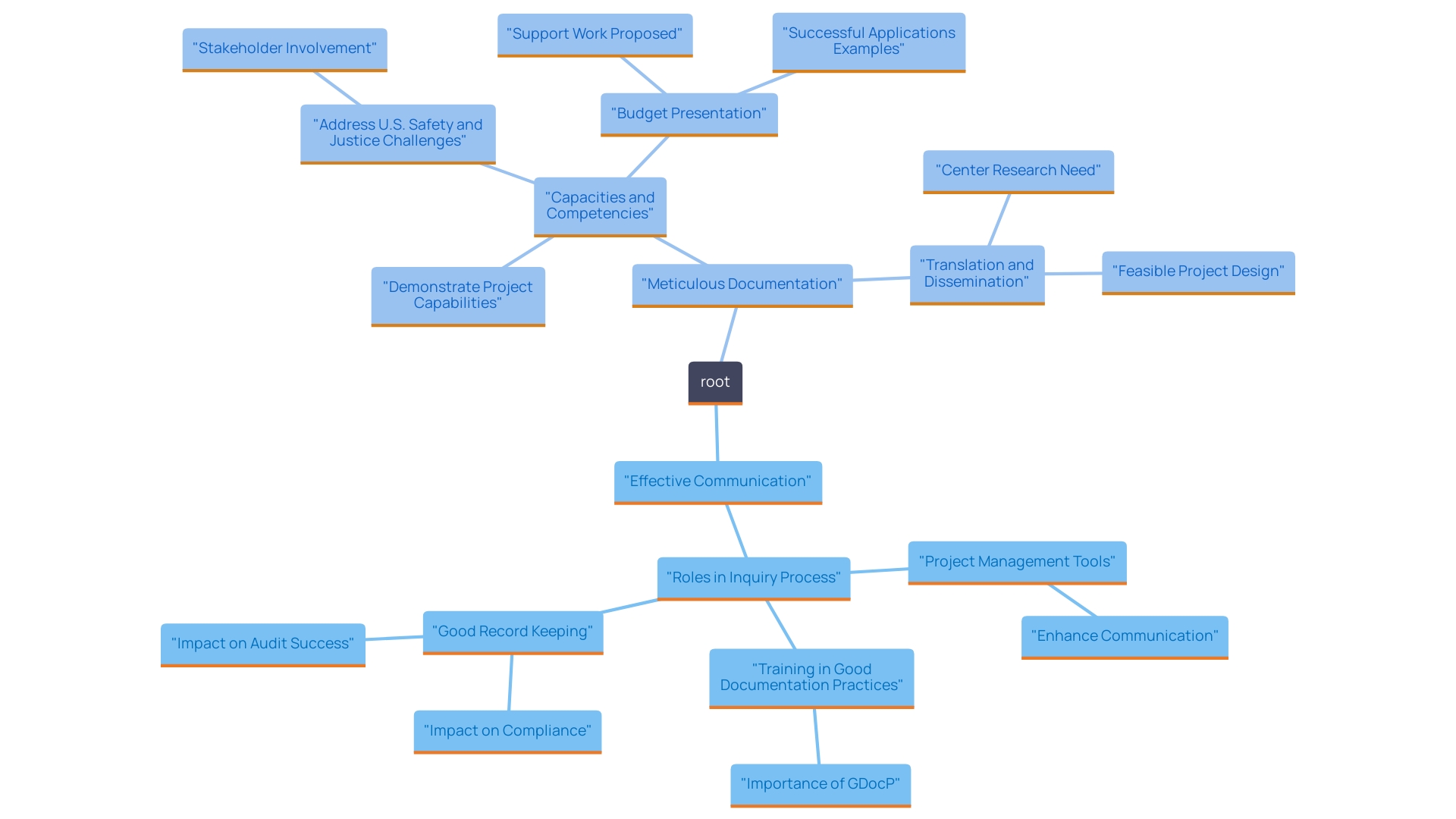
Conclusion
Establishing a strong foundation for effective disputes and investigations is critical for organizations facing a complex regulatory environment. By implementing clear policies, continuous training, and a culture of transparency, organizations can proactively manage disputes and minimize their escalation. The integration of technology and data analytics further enhances these efforts, enabling teams to identify irregularities and streamline processes for better compliance and risk management.
As the landscape shifts in 2024, staying ahead of emerging trends such as increased regulatory scrutiny and digital fraud is essential. Organizations must adapt their strategies to maintain compliance and uphold stakeholder trust, which is paramount in today’s business environment. This adaptability requires a commitment to ongoing training and an emphasis on communication and documentation practices, ensuring that all investigative actions are well-documented and transparent.
Ultimately, CFOs play a pivotal role in fostering a culture of accountability and integrity within their organizations. By prioritizing best practices, leveraging technology, and staying informed about regulatory changes, they can navigate the complexities of disputes and investigations effectively. Taking decisive action now will not only safeguard organizational interests but also build a robust framework for future challenges, reinforcing a commitment to compliance and ethical standards.




